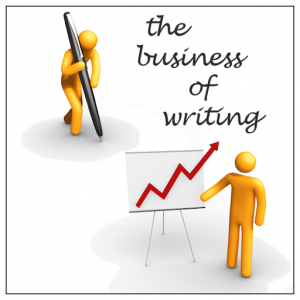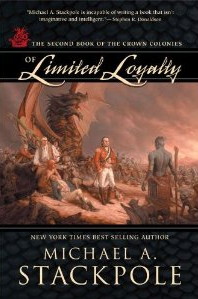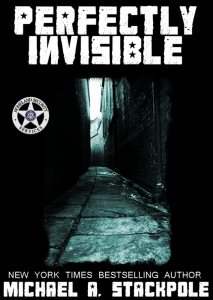Capitalism 101

Writers write for a lot of different reasons:
For fun.
For feedback.
To hone their skills.
To get noticed.
To get famous.
To get rich.
To change the world.
To make a living.
I’m sure there are many more reasons for writing. Many writers write for more than one of the the above—all the good ones do. Locking in on just one reason can blind a writer to other opportunities. For example, someone writing to get noticed, to get feedback and for fun, might confine themselves to writing fanfic, when their skills, applied elsewhere, might allow them to make a living, or at least a little money. Someone focusing on getting rich might travel from hot topic to hot topic, never devoting enough time to honing his skills so that he gets good enough to keep the readers he initially attracts. And some writers work very hard building an audience because they want to be famous and can’t live in a vacuum without notice or feedback, but they never reach their true potential as writers because they’ve trained themselves to be marketers.
One of the reasons I write is to make a living. I’ve been making a living as a freelancer, writing mostly, doing game design jobs or teaching workshops here and there, since 1987. My involvement in the gaming industry meant that, in the early 1990s, as Magic: The Gathering came into the industry and started to make a lot of people a lot of money, I was offered a monthly column in Comics and Games Retailer magazine. My focus was on helping stores figure out how to profit in a time when the industry was awash in money, when new stores were popping up, and when pronouncements from Wizards of the Coast were taken as revelations from on high. If WOTC said it, folks believed it, and then got upset when things didn’t work out the way WOTC predicted or they interpreted the predictions.
That period of time led me to formulate my definition of Capitalism: A state in which businesses act in their own enlightened* self-interest. (*Enlightenment is subject to interpretation, revision and modification, often without notice, and more often in ignorance.)
I hardly need to point to Wizards of the Coast and things they did ages ago when companies like RIM or Netflix have so recently done things which make my case for me. In some office inside each of those companies, a bunch of intelligent individuals pouring over streams of data, talked themselves into believing that doing one thing or another was sheer brilliance. Then when consumers revolted and sales plummeted, they took that data into account, modified their plan, and went forward again. Sometimes companies succeed when they do that, other times, they become that painful investment write-off on your taxes.
Our job, as consumers or content providers, is to look at what ebook companies are doing and decide how we can make money in this environment. Companies like Amazon, Barnes & Noble and Apple are the top predators in this market. Realistically there’s not a damned thing I can do to influence how they are going to operate. Face it, the plans we see them executing now have been in the works for months and have a momentum all their own. To oppose them is to be crushed or, worse yet, completely ignored.
So, we let the top predators wage their wars. I’m content with being a coyote scavenging around the edges. What are scraps to them are huge hunks of meat to me. Their fights attract a lot of attention, and I can use that attention to my advantage. As noted above, being ignored is the worst thing than can happen, so cultivating visibility is very useful.
This brings me to Apple’s iBooks Author End User Licensing Agreement. I downloaded the iBooks Author software the day it became available. I’ve played with its some and in a future post I’ll mention a number of the independent author projects I think it’s perfect suited for. The EULA has raised flags and concerns—there are plenty of folks who have weighed in on whether or not it’s legal, and of lot of folks think it’s a huge rights grab. Many people think it was stupid of Apple to offer such software with so hideous a EULA, and that it will be a public relations nightmare when the inevitable consumer backlash occurs.
It should surprise no one that I’ve liked Apple products for a long time, and have been using them since 1987 on a consistent basis. What follows is not a fanboy commentary. It’s a writer’s commentary, and a businessman’s commentary. When I opened the software, when I read the EULA and all the commentary on it, I asked myself the same question that Apple and all corporations ask themselves:
What’s in this for me?
I can only speculate on why Apple wrote the EULA they did, but given the context of the event at which the software was released, I’m going to guess at their thinking. They wanted to position the iPad as the go-to device for education. The software allows teachers and home schoolers to prepare lesson plans which they can share with students or each other for free, without any interference from Apple. If anyone wants to profit from their product, Apple wants a cut. Fair cop there, I think. And Apple doesn’t want to empower any other tablet or readers to use the textbooks their software generates because that would dilute their hold on the market. Again, not hard to understand.
I don’t think any of that is unreasonable on their part. In fact, the whole idea of allowing for free distribution of texts created by their software puts a bit of an altruistic polish on their claims that they’re in it to educate kids. Let’s face it, anyone who prepares a text can easily have a donate button on their website to encourage folks to reward them for their efforts, and the EULA does not address that donation model. Surely Apple had to consider as a possibility and ignored it.
But I go back to the core question: What’s in it for me? Why would I want to use the software if the EULA is so hideous? What benefit do I derive from creating a product that will only look good on an iPad? Is it worth my time and effort to play with the software when, at the most alarmist reading, the EULA suggests that Apple owns everything I’ve created using it?
Let me hit that last question first, because there’s a fairly simple answer to it: if you’re worried that Apple will own everything, don’t use iBooks Author as your word processor. Do the work in something else and import the text. That’s the solution to that little problem, and it’s a pretty simple one.
So, what is in iBooks Author for me? In a word: access.
Follow my reasoning. Apple has just made a splash with a push that identifies their machine as the educational machine. I write work that appeals to many demographic groups, but one of them is that coveted Middle School through College group. Having a story of mine included in a class as part of the curriculum gives me and my work an imprimatur of legitimacy. That’s less important, of course, than the fact that it will get my words in front of students—students whom, I hope, will look for more of my work to read on their iPads.
I was trained as a teacher—I did a full semester of student teaching, in fact—and I recall film strips and movies being described as “lesson-plan in a can.” Not only can an educational edition of a story or novel provide an overworked teacher with good material, but home schoolers are dying for this sort of material. Charter school teachers are looking for it, too. So are book-clubs and reading groups.
Aside from students who have their iPads issued to them in school, iPad owners/users fall into another coveted demographic: the qualified end-user. What that translates to for non-marketing folks is simple: they have a credit card and enough cash to afford an empty box into which they need to stuff material. Since I make that material which they stuff into their machines, getting access to them and getting noticed by them is a good thing for my business.
The above discussion does not mean that I’ve decided that I will produce material for distribution via iBooks Author software. I’ll still wait to see if the dust settles on the EULA—I trust lawyers to thin-slice that agreement so I get a better understanding of the consequences of participating with it. If no one finds any more Mordorian clauses in the contract, I’ll finish off an educational edition of a short story (complete with annotated texts, exercises and discussion points) and see how it goes. I’ll have put 10 hours into the project at that point, and I’m willing to risk that time investment on something that could pay big dividends down the line.
If one of your goals for writing is to be able to make money, then you need to do Capitalism better than top predators. Our advantage is that we are more flexible, can move more quickly and can survive on income streams that the behemoths see as rounding errors. As long as you’re willing to keep yourself enlightened, and act in your own self-interest (however you define it), you’ll survive and even thrive.
Writing blog posts cuts into my fiction writing time. If you’re finding these posts useful, and haven’t yet gotten yet snagged my latest novels, please consider purchasing a book. Nice thing about the new age of publishing is that you become a Patron of the Arts, letting writers know what you’d like to see more of simply by voting with a credit card. (Authors charge less when they sell direct, so you save, we make more, and that frees us to write more.)
 My latest paper novel, Of Limited Loyalty, is out in paper. If you want it for the Kindle, just hit this link.
My latest paper novel, Of Limited Loyalty, is out in paper. If you want it for the Kindle, just hit this link.
 For those of you who haven’t tried Perfectly Invisible yet, now is your chance. I’ve provided three sample chapters here on my website, or you can click on any of the online retailers below and download a free preview of the novel. You can get up to speed on Miracle Dunn and watch how the new story unfolds here as I blog about the writing. (The novel is 50,000 words long, or a five hour read for the average reader.)
For those of you who haven’t tried Perfectly Invisible yet, now is your chance. I’ve provided three sample chapters here on my website, or you can click on any of the online retailers below and download a free preview of the novel. You can get up to speed on Miracle Dunn and watch how the new story unfolds here as I blog about the writing. (The novel is 50,000 words long, or a five hour read for the average reader.)
The full novel is available for purchase right now from my webstore. Just click on the cover image to the left, or on that link. The novel runs $3.99, and the package in my store has both the Kindle and epub versions of the books, so you’ll have a copy that works with any of your readers. As always, the books are presented without DRM (digital rights management) and I have a note with instructions for getting the book onto ereaders and smartphones.
For the Kindle edition, just hit this link.
To purchase it through iTunes for your iPad/iPhone/iPod, just hit this link.
To purchase it through Barnes & Noble for your Nook, please use this link.



 24. Jan, 2012
24. Jan, 2012 







4 Responses to “Capitalism 101”